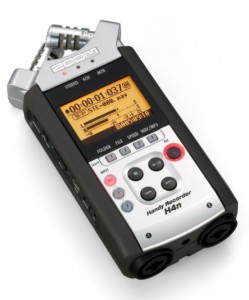
–The Musician’s Way, p. 149
When you’re onstage, do you feel secure and creative?
If not, the reasons probably stem from the habits you reinforce in practice.
Here are 8 strategies that help aspiring musicians gain performance skills and become commanding performers. All are explored in depth in The Musician’s Way.
8 Ways to Reinforce Performance Habits in Practice
1. Select Accessible Repertoire
To build up performance skills, choose music that’s simple for you to execute so that you can focus on your inner skills and not be burdened by technical demands. If you need help finding music that’s easy and appealing, consult a teacher or mentor.
2. Feel Ahead
During practice, feel ahead rather than slipping into autopilot or muscle memory. Such habits of awareness anchor our security because we require conscious control to perform expressively under pressure.
“Habits of awareness anchor our security because we require conscious control to perform expressively under pressure.”
3. Instill Ease
As you build awareness, reduce physical and mental effort: lighten your touch; widen your focus. Retain large amounts of reserve inner capacity so that you can be spontaneous on stage, connect with co-performers, and handle any difficulties that arise.
4. Listen
Concurrent with reducing effort, deepen your listening – attend to your and any co-performer’s tone, timing, dynamics, and so forth. Shape every phrase with clear musical intentions while opening yourself to fresh interpretive insights.
5. Practice Performing
Simulate performing in a variety of ways. In your practice room, in front of supportive friends, and, as shown in the above photo, in performance venues without an audience present. Always video or audio-record.
Recommended Recorders: Audio: Zoom H4n; Video & Audio: Zoom Q4n
6. Evaluate Objectively
Treat problems and errors as neutral information that you’ll use to upgrade your skills. As you review a recording, for instance, take notes about things you’d like to improve.
7. Make & Implement Improvement Plans
Use your notes from your mock performances to determine practice plans. Practice deliberately for several days or more, and then simulate performing again. Study The Musician’s Way for guidelines to practice effectively; ideally, work with a teacher too.
8. Be Positive
Performance problems can be vexing, but stay positive, no matter what obstacles you face. Performances skills take time to acquire, but they can be acquired by anyone with a passion for sharing music.
The Musician’s Way has helped musicians across the world become successful performing artists.
Related posts:
Assessing Your Performance Skills
Becoming a Confident Performer
Learning the Art of Performance
Performance-Oriented Practice
Practicing Performance
© 2015 Gerald Klickstein
Photo © Pavel L, licensed from Shutterstock.com


